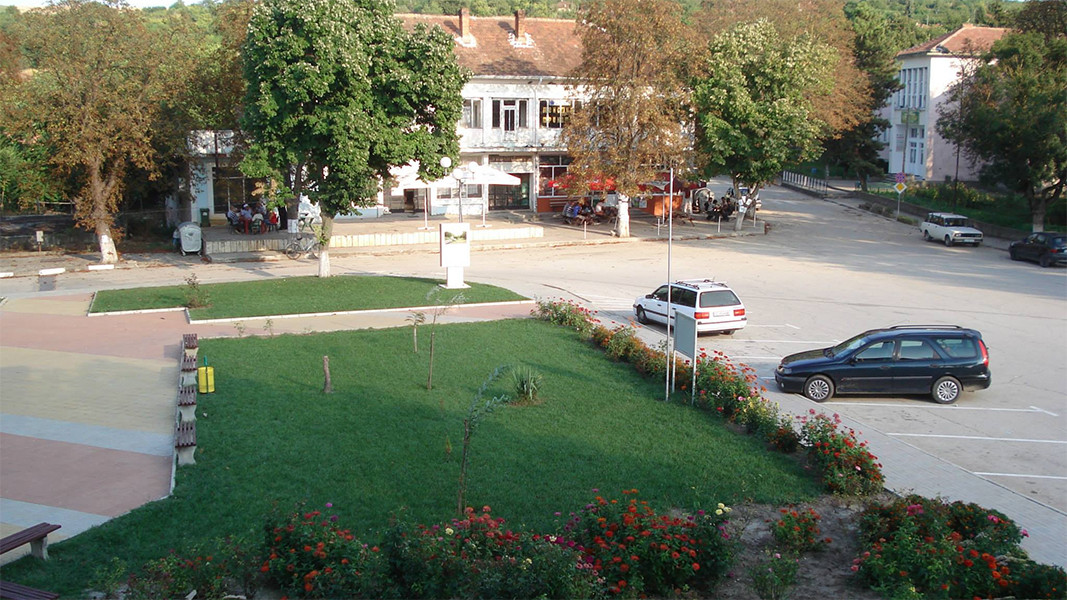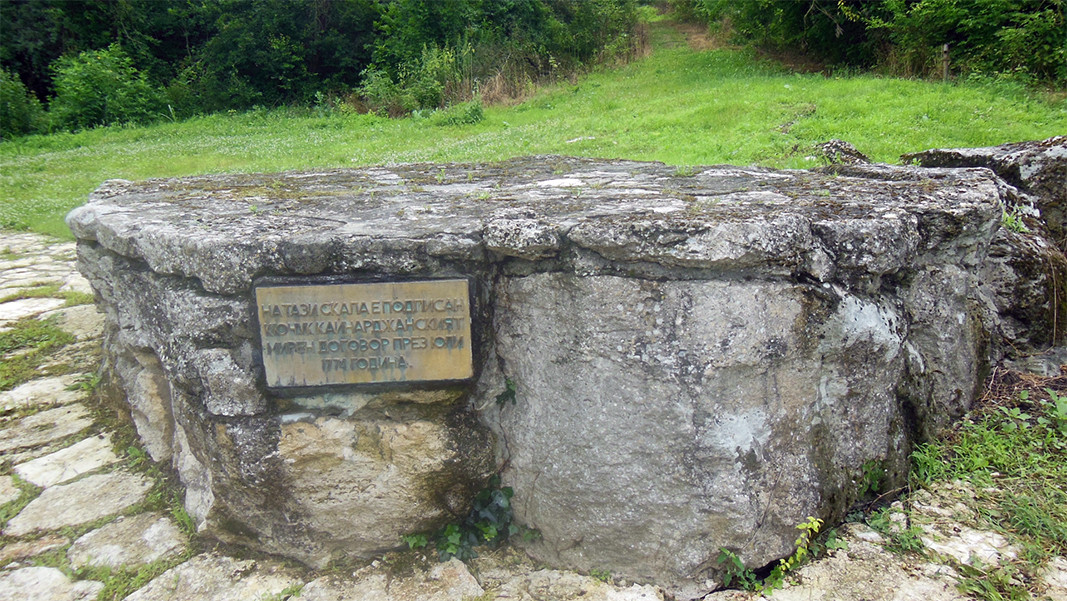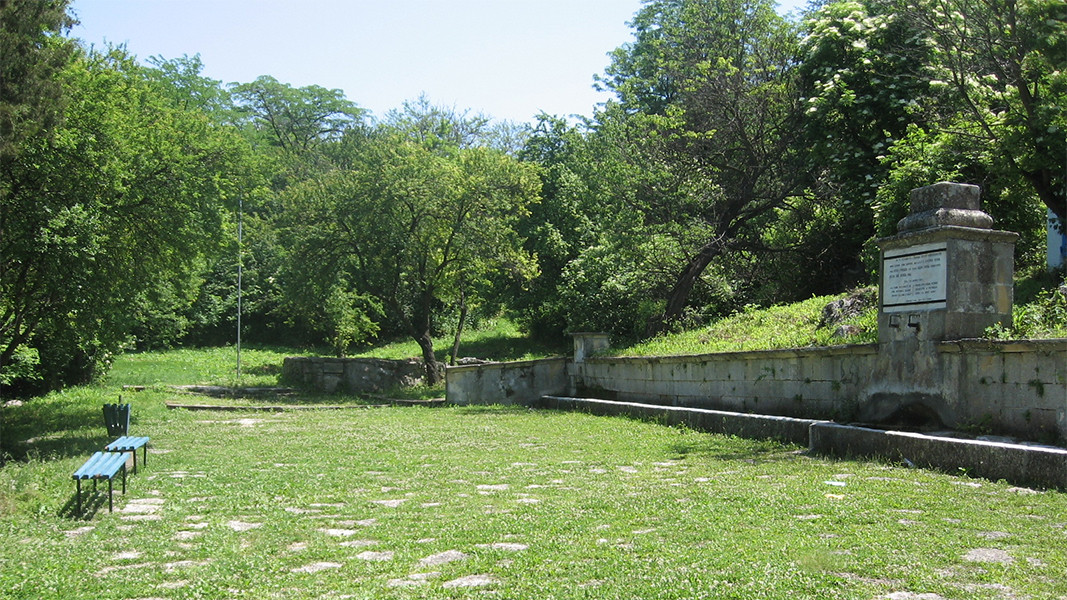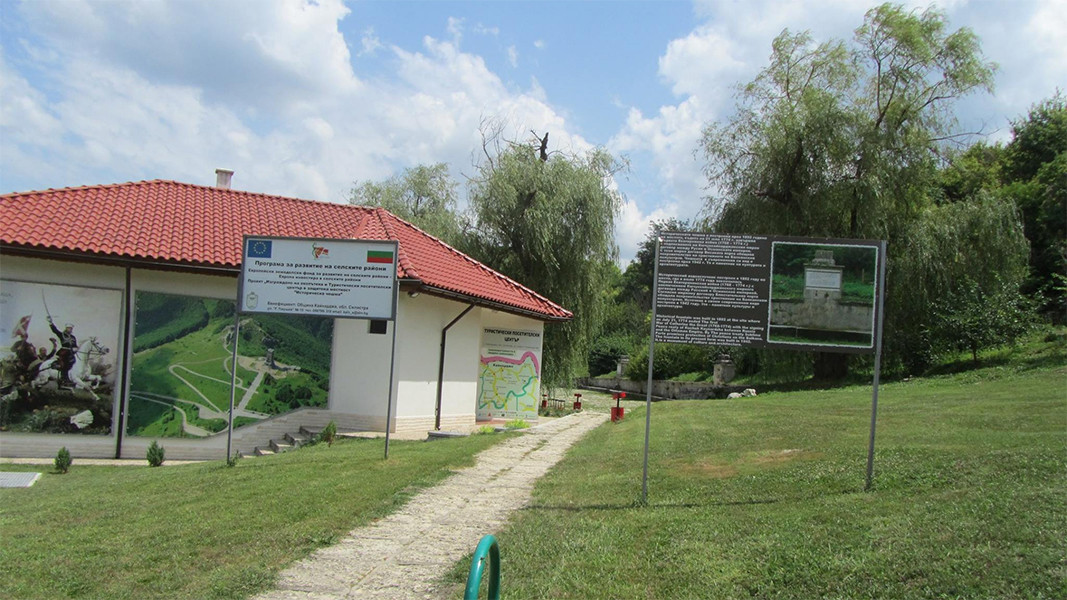
In 2015, Kaynardzha became the first Bulgarian administrative center to join the European "Places of Peace". The invitation to the Bulgarian settlement is not accidental. In 1774, the Kyuchuk Kaynardzha Peace Treaty between Russia and the Ottoman Empire was signed there.
"At this place (on July 21, 1774, at the end of the fifth Russo-Turkish war in a row - note ed.) the good finale of a long war, which lasted from 1768 to 1774 with the signing of the Kyuchuk Kaynardzha peace treaty, was put", recalls the deputy mayor of Kaynardzha Municipality, Bonka Yordanova. -"In 1773, the Russian army won a victory over the Ottoman army precisely at Kaynardzha. Then fierce military actions developed, the population of Kaynardzha also suffered a lot from these battles. It is no coincidence that many Bulgarians emigrated from our territories at that time and settled in the lands of today's Ukraine and Moldova. After the victory of the Russian army, peace talks were proposed, which lasted from the beginning of January until the middle of July 21, when the peace treaty between the two empires was concluded".

The treaty provided for the cession of Kerch and several other Black Sea ports on the Crimean Peninsula to Russia, and the rest of the Crimean Khanate was declared independent. Russian merchant ships received permission to sail in Turkish waters. The principalities of Moldavia and Wallachia were restored under the sultan's suzerainty, but Russia acquired the right to intervene in the Sublime Porte (the court of the sultan) on their behalf.
At the place where the contract was signed, today a fountain stands, around which a 32-acre nature park and a tourist center have been built.

"The fountain was built in 1892. In 1973, on the occasion of the 200th anniversary of the signing of the peace treaty, the Municipal Council of Kaynardzha decided to turn the place into a park. In 2014, as part of a rural development program project, we managed to build and equip a tourist center with an exhibition and conference hall for events with up to 50 participants.

A permanent exhibition in the center tells about the peace treaty signed here, about the protected natural areas in the area and about the lifestyle of local people.
Photos: Kaynardzha Municipality, Silistra Municipality
Compiled by Joan Kolev (based on an interview of Aishe Lyatish from BNR's Radio Shumen)
Translated and published by Rositsa Petkova
“On 13 February this year, Bulgarian consumers must not shop at any of the grocery stores, at any of the chain stores, at any of the supermarkets! On 13 February grocery stores must be left empty, with not a single buyer in them,” the organizers..
A team of 12 Bulgarian 11th grade students, led by Elitsa Pavlova, won first place among participants from around the world in the prestigious Live in a Healthy Space Design Competition organized by the National Space Society (NSS)..
On the occasion of the upcoming National Holiday - March 3 and 147 years since the Liberation of Bulgaria from Ottoman rule, the Regional Library in the city of Yambol is conducting the campaign "Let's Read for Bulgaria". The goal is..
“On 13 February this year, Bulgarian consumers must not shop at any of the grocery stores, at any of the chain stores, at any of the supermarkets!..

+359 2 9336 661
